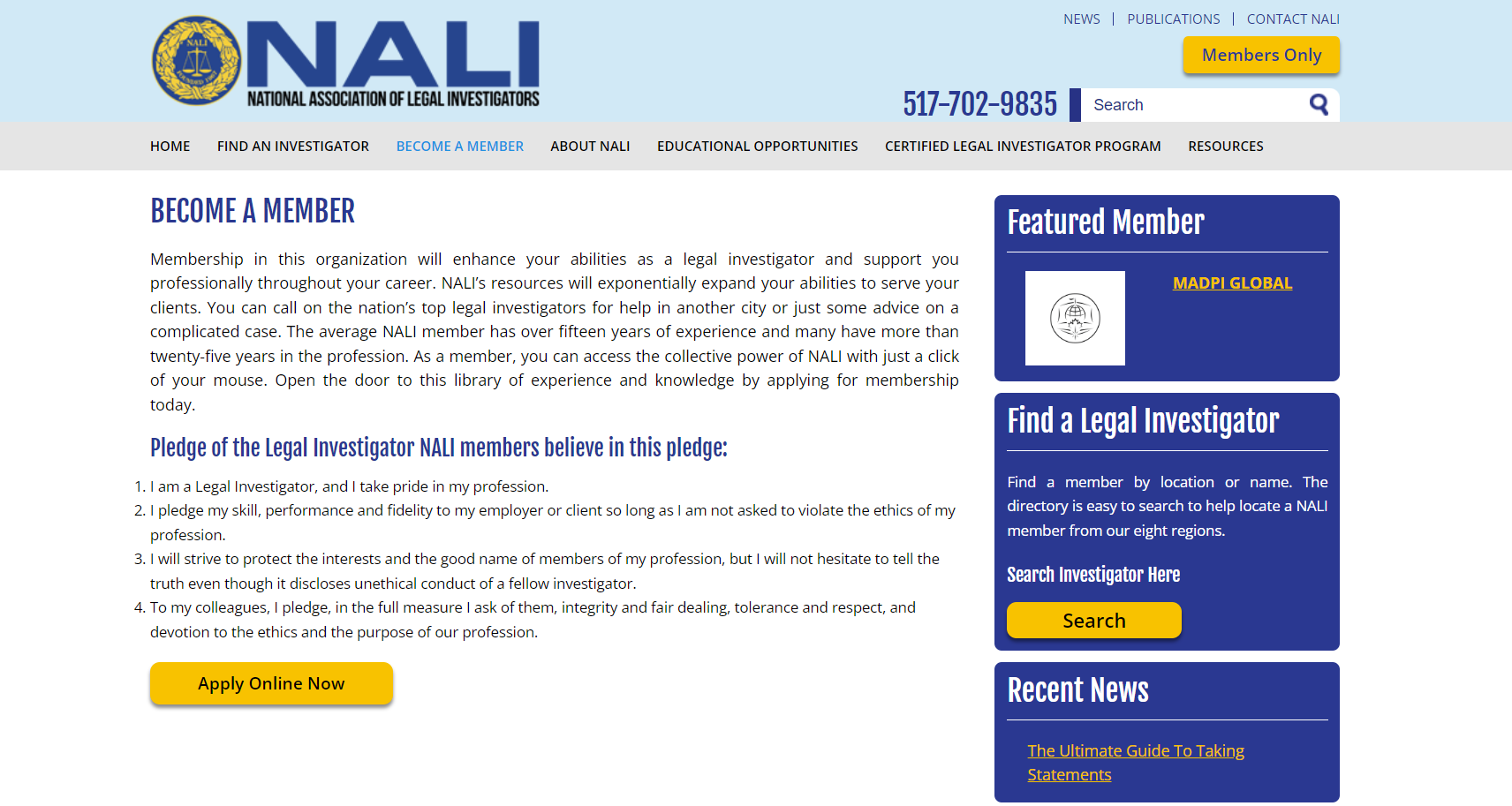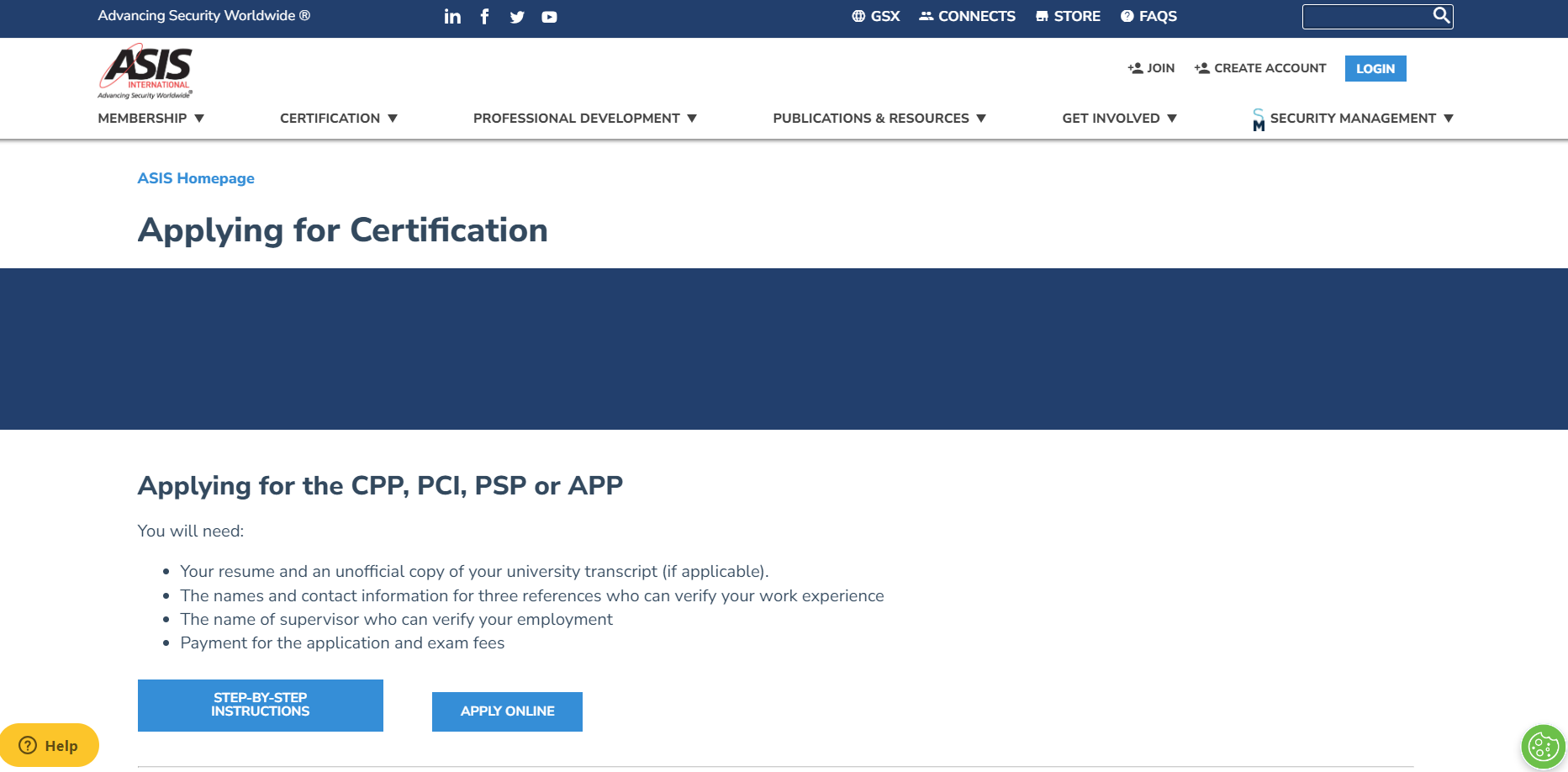
Suppose you’ve always been intrigued by the world of investigations and have a knack for unraveling mysteries. In that case, a career as a private investigator might be the perfect fit for you in Oregon. Private investigators play a crucial role in assisting individuals, businesses, and even law enforcement agencies in gathering information, uncovering facts, and solving cases. In addition to learning the ins and outs of investigation techniques, it is important to understand the legal aspects of running your own private investigation business.
Establishing an LLC in Oregon is popular for many private investigators as it provides legal protection and facilitates smooth business operations. This article will outline the steps you need to take to Become a Licensed Private Investigator in Oregon.
Webinarcare Editorial Team will help you gain knowledge through thorough research and market study. Before becoming a private investigator in Oregon, all the steps in this article must guide you.
On this page, you’ll learn about the following:
What is a Private investigator?
A private investigator in Oregon is a professional who conducts investigations, gathers information, and performs surveillance for individuals, businesses, and legal professionals. In Oregon, private investigators must be licensed by the Oregon Department of Public Safety Standards and Training – Private Security/Private Investigator Program to operate within Oregon legally. They often work on various cases, including civil matters, insurance fraud, background checks, infidelity, missing persons, etc. These professionals use their skills and expertise to collect evidence, analyze information, and provide their clients with valuable insights to help them make informed decisions or resolve disputes.
Embarking on a journey to become a private investigator in Oregon is like entering a maze of possibilities where every corner holds a potential clue. As you uncover the secrets tucked away in the shadows, remember to secure your own path by learning how to start an LLC in Oregon. Establishing a legal entity shields you from liabilities and empowers you to navigate the investigative landscape with professionalism.
– WEBINARCARE EDITORIAL TEAM
How to Become a Private Investigator in Oregon
Suppose you’re considering becoming a private investigator in Oregon. In that case, it’s essential to understand the steps and requirements involved in obtaining your license and starting your professional journey. This step-by-step guide will walk you through becoming a private investigator in Oregon.
Step 1: Research The Requirements
Each state has its own set of requirements and regulations for becoming a licensed private investigator. The agency responsible for regulating private investigators in Oregon is the Oregon Department of Public Safety Standards and Training – Private Security/Private Investigator Program. Familiarizing yourself with the specific requirements for obtaining a private investigator license in Oregon is important.
Some common requirements for obtaining a PI license in Oregon include:
- Age: Oregon requires individuals to be 18 or 21 to apply for a Private Investigator license.
- Citizenship: Applicants must be U.S. citizens or legal residents.
- Education: Oregon requires a high school diploma or GED, while others may require a degree in criminal justice or a related field.
- Experience: Oregon requires years of experience in law enforcement, security, or other related fields.
- Background Check: Applicants will likely need to pass a background check, which may include fingerprinting and a criminal history check.
- Licensing Exam: Oregon requires applicants to pass a licensing exam that tests their knowledge of state laws, regulations, and general investigative techniques.
Becoming a private investigator is ideal if you want to start an LLC for your security company in Oregon. We recommend these LLC Formation Services in Oregon if you plan to form one.
Step 2: Obtain Education and Experience
As mentioned earlier, Oregon requires a certain level of education and experience to become a licensed private investigator. There are several educational paths you can pursue to prepare for a career as a private investigator, including:
- Degree Programs: Some Oregon colleges and universities offer associate’s or bachelor’s degree programs in criminal justice, forensic science, or a related field. These programs typically cover criminal law, investigation techniques, and crime scene analysis.
- Certificate Programs: Oregon community colleges and vocational schools offer certificate programs in private investigation or a related field. These programs generally take less time to complete than a degree program and focus on specific skills and knowledge needed for a career in private investigation.
- Online Courses: Numerous online courses and training programs cover various aspects of private investigation. These courses can be a convenient and affordable way to gain knowledge and skills in the field.
In addition to formal education, gaining practical experience in a related field can be invaluable for aspiring private investigators. Some possible avenues for gaining relevant experience include:
- Law Enforcement: Working in law enforcement, such as a police officer or detective, can provide valuable experience in investigation and surveillance techniques.
- Military Service: Military personnel, particularly those in intelligence or security roles, often develop skills that can be transferred to a career as a private investigator.
- Security Work: Working as a security guard or in corporate security can provide experience in surveillance, risk assessment, and incident response.
- Legal Field: Paralegals and legal assistants often conduct research and investigations for attorneys, which can provide a foundation for a career as a PI.
Here is the breakdown of the education and practical experience in becoming a licensed private investigator in Oregon.
| Education | Experience |
| Degree Programs | Law Enforcement |
| Certificate Programs | Military Service |
| Online Courses | Security Work |
| Legal Field |
Step 3: Apply For a Private Investigator License
Once you have met the education and experience requirements in Oregon, you can begin applying for a private investigator license in Oregon. This typically involves applying to the Oregon Department of Public Safety Standards and Training – Private Security/Private Investigator Program and any required documentation, fees, and proof of insurance.
In Oregon, the application process may include the following steps:
1. Complete the Private Investigator License Application
Obtain and complete the PI license application from the Oregon Department of Public Safety Standards and Training – Private Security/Private Investigator Program. Be sure to provide accurate and complete information, as any discrepancies could result in delays or denial of your application.
2. Submit the Required Documentation
Along with your completed application, you must submit various documents, such as proof of education and experience, a copy of your driver’s license, and any required affidavits or forms.
3. Pay Application and Licensing Fees
There may be fees associated with the application and licensing process in Oregon. Be sure to include these fees when submitting your application. The usual fee for the application and licensing process for the Oregon private investigator costs $550.
4. Obtain Liability Insurance
Oregon requires private investigators to carry liability insurance or a surety bond. In Oregon, the minimum amount of coverage required is $5,000 surety bond (not liability insurance, but a financial guarantee).
5. Pass the Licensing Exam
If required in Oregon, you must pass a licensing exam that tests your knowledge of state laws, regulations, and general investigative techniques.
6. Background Check and Fingerprinting
As part of the application process, you will likely need to undergo a background check and submit fingerprints to the Oregon Department of Public Safety Standards and Training – Private Security/Private Investigator Program.
Step 4: Maintain Your Private Investigator License
Once you have obtained your private investigator license in Oregon, it is important to maintain your license in good standing. This may involve completing continuing education requirements, renewing your license periodically, and adhering to any regulations and ethical standards set forth by the Oregon Department of Public Safety Standards and Training – Private Security/Private Investigator Program. When you become a fully-fledged Oregon private investigator, it is best to consider other certifications for your career development.
Below are two professional credential options that private investigators can pursue.
Certified Legal Investigator
The Certified Legal Investigator (CLI)® is a professional certification program offered by the National Association of Legal Investigators (NALI). It is designed for private investigators who specialize in legal investigations and wish to demonstrate proficiency and expertise in the field.

To become a Certified Legal Investigator (CLI)®, candidates must meet certain eligibility requirements, including having a minimum of five years of investigative experience and a certain number of those years working on legal investigations. Candidates must also pass a written examination that covers topics such as legal ethics, civil and criminal law, evidence collection and preservation, and witness interviews.
By earning the CLI certification, investigators show they have high competency and professionalism in legal investigations and adhere to the highest standards of ethics and integrity. The legal community recognizes the certification and can help investigators gain credibility and recognition in the field.
You can visit NALI’s CLI requirement page for the most up-to-date certification requirements.
Professional Certified Investigator (PCI)®
The Professional Certified Investigator (PCI)® is a professional certification program offered by ASIS International, a global association for security management professionals. The certification is designed for private investigators and security professionals conducting corporate, government, or non-profit investigations.

To become a Professional Certified Investigator (PCI)®, candidates must meet certain eligibility requirements, including having a minimum of five years of investigative experience and a certain number of those years working in a supervisory or management role. Candidates must also pass a written examination that covers topics such as investigation planning, case management, evidence collection and preservation, and legal and ethical considerations.
By earning the PCI certification, investigators show they have high competency and professionalism when conducting investigations and adhere to the highest standards of ethics and integrity. The certification is recognized by employers, clients, and industry peers and can help investigators advance their careers and gain credibility in the field.
You can visit ASIS’ eligibility requirements page for the most up-to-date information regarding PCI certification requirements.
Recommended: Begin your journey to become a private investigator with the first bold step by using Legalzoom’s LLC formation services. When you start an LLC with Legalzoom, you’re not just making a business transaction, you’re carving out a future in the security industry. Even making your own security company, it is best to hire an LLC services. That’s why we recommend –
– LegalZoom – ($0 + State Filling Fees)
How Much Does a Private Investigator Make?
The salary of a private investigator varies based on experience, location, and type of work. According to the Bureau of Labor Statistics, the average annual salary of a private investigator in the United States is $50,510.
FAQs
Also Read
- Become a Private Investigator in Alabama
- Become a Private Investigator in Alaska
- Become a Private Investigator in Arizona
- Become a Private Investigator in Arkansas
- Become a Private Investigator in California
- Become a Private Investigator in Colorado
- Become a Private Investigator in Connecticut
- Become a Private Investigator in DC
- Become a Private Investigator in Delaware
- Become a Private Investigator in Florida
- Become a Private Investigator in Georgia
- Become a Private Investigator in Hawaii
- Become a Private Investigator in Idaho
- Become a Private Investigator in Illinois
- Become a Private Investigator in Indiana
- Become a Private Investigator in Iowa
- Become a Private Investigator in Kansas
- Become a Private Investigator in Kentucky
- Become a Private Investigator in Louisiana
- Become a Private Investigator in Maine
- Become a Private Investigator in Maryland
- Become a Private Investigator in Massachusetts
- Become a Private Investigator in Michigan
- Become a Private Investigator in Minnesota
- Become a Private Investigator in Mississippi
- Become a Private Investigator in Missouri
- Become a Private Investigator in Montana
- Become a Private Investigator in Nebraska
- Become a Private Investigator in Nevada
- Become a Private Investigator in New Hampshire
- Become a Private Investigator in New Jersey
- Become a Private Investigator in New Mexico
- Become a Private Investigator in New York
- Become a Private Investigator in North Carolina
- Become a Private Investigator in North Dakota
- Become a Private Investigator in Ohio
- Become a Private Investigator in Oklahoma
- Become a Private Investigator in Oregon
- Become a Private Investigator in Pennsylvania
- Become a Private Investigator in Rhode Island
- Become a Private Investigator in South Carolina
- Become a Private Investigator in South Dakota
- Become a Private Investigator in Tennessee
- Become a Private Investigator in Texas
- Become a Private Investigator in Utah
- Become a Private Investigator in Vermont
- Become a Private Investigator in Virginia
- Become a Private Investigator in Washington
- Become a Private Investigator in West Virginia
- Become a Private Investigator in Wisconsin
- Become a Private Investigator in Wyoming
How to Save Money While Starting a Becoming Private Investigator in Oregon
One of the first things to consider when looking to save money as a private investigator in Oregon is to thoroughly research the licensing requirements. While it may be tempting to rush through the process and obtain whatever licenses seem necessary, taking the time to carefully review the state laws and regulations can help you avoid unnecessary fees and requirements. By understanding exactly what is needed to operate legally as a private investigator in Oregon, you can ensure that you are not overspending on licenses or certifications that may not be required.
Another way to save money as a private investigator in Oregon is to invest in used equipment whenever possible. While having the latest and greatest gadgets may seem appealing, it is not always necessary to start off with top-of-the-line equipment. By purchasing gently used cameras, recording devices, and other surveillance equipment, you can save a significant amount of money without sacrificing the quality of your work. Additionally, consider renting equipment on an as-needed basis, rather than purchasing it outright, to further reduce costs.
Networking is another crucial aspect of saving money as a private investigator in Oregon. By building relationships with other professionals in the industry, you can potentially save money on services such as graphic design, legal advice, or even subcontracting work. Furthermore, networking can help you build a referral network, which can lead to new clients without the need for expensive marketing campaigns. Joining professional organizations or attending industry events can also help you make valuable connections that can save you money in the long run.
When it comes to marketing your services as a private investigator in Oregon, there are plenty of cost-effective strategies you can utilize. Instead of relying solely on expensive advertising campaigns, consider creating a strong online presence through social media, a professional website, and targeted email marketing. By leveraging these digital tools, you can reach a wider audience without breaking the bank. Additionally, offering discounts or incentives to new clients or referrals can help you attract business without overspending on marketing expenses.
Lastly, consider the benefits of continued education and training as a way to save money while starting out as a private investigator in Oregon. By staying current on industry trends and best practices, you can differentiate yourself from the competition and attract higher-paying clients. Additionally, taking advantage of free resources such as online tutorials, seminars, or networking events can help you develop new skills without spending a fortune on formal training programs.
In conclusion, starting a career as a private investigator in Oregon does not have to break the bank. By carefully researching licensing requirements, investing in used equipment, networking with other professionals, utilizing cost-effective marketing strategies, and continuing your education, you can save money while still providing top-notch services to your clients. With determination and resourcefulness, you can build a successful private investigation business in Oregon without overspending.
Conclusion
Becoming a licensed private investigator in Oregon requires meeting specific education and experience requirements, passing a licensing exam, and obtaining a PI license from the Oregon Department of Public Safety Standards and Training – Private Security/Private Investigator Program. By following the steps outlined in this article, you can be well on your way to a rewarding career as a private investigator in Oregon.

